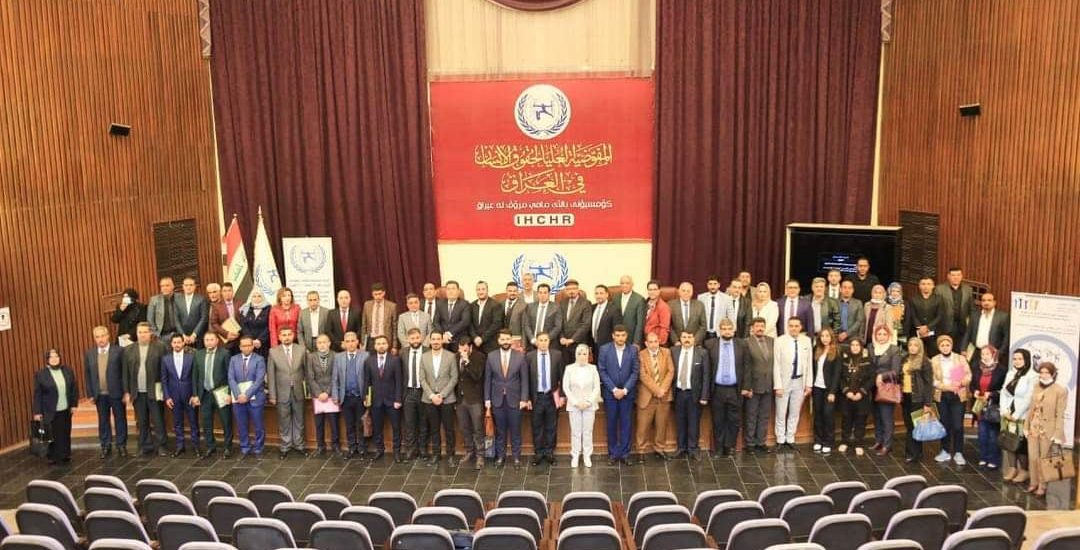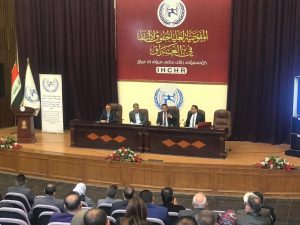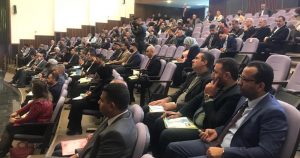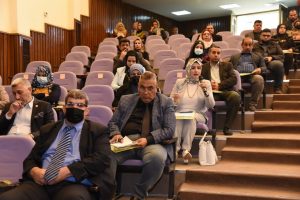- 20 ديسمبر، 2021

In cooperation with the High Commission for Human Rights and the Ministry of Higher Education and Scientific Research, the Ufuq Organization for Human Development held an expanded and founding symposium to review human rights curricula in Iraqi universities and form institutional and methodological frameworks to upgrade mechanisms and means compatible with international standards in this regard. Within the program to develop the capabilities of Iraqi universities to disseminate The culture of human rights in Iraq.
The Director of the Publication and Education Department at the Commission, Akram Ogla, presented during the symposium a vision on (Cairo Declaration for the Dissemination and Education of Human Rights) and its important articles in preserving the rights of the individual and the family in building society, the equality of women and men with rights, and the rights of the child to obtain material and health care and education. As well as articles on promoting a culture of peace and belonging, and urging governments to remove restrictions on media departments to disseminate and promote a culture of human rights.
The international expert, Director of Publication and Education in the Baghdad office, and the person in charge of the community peace file in the Commission’s Baghdad office, Professor Baraa Najib Al-Hadithi, also presented a survey study that included indicators about human rights taught in Iraqi universities and institutes, and a diagnosis of deficiencies in the preparation of curricula and teaching staff.
Member of the Expert Committee for the Human Rights Curriculum at the Ministry of Education and Scientific Research, Dr. Essam Al-Faili, reviewed the mechanism of developing a human rights subject, pointing out the importance of teaching this subject in the early stages of an individual’s life so that these principles are strengthened for him, especially if the curricula include practical applications to consolidate them in the student’s mind.
Ufuq, through Mr. Ali Bakht Al-Tamimi, presented future programs that would coordinate work between the relevant authorities, the importance of exchanging experiences between civil society organizations and Iraqi universities, and preparing the national strategy for human rights in Iraq.
The expanded symposium was attended by representatives of Iraqi universities and institutes, including deans of colleges, directors of units, and university professors, from all Iraqi governorates.




